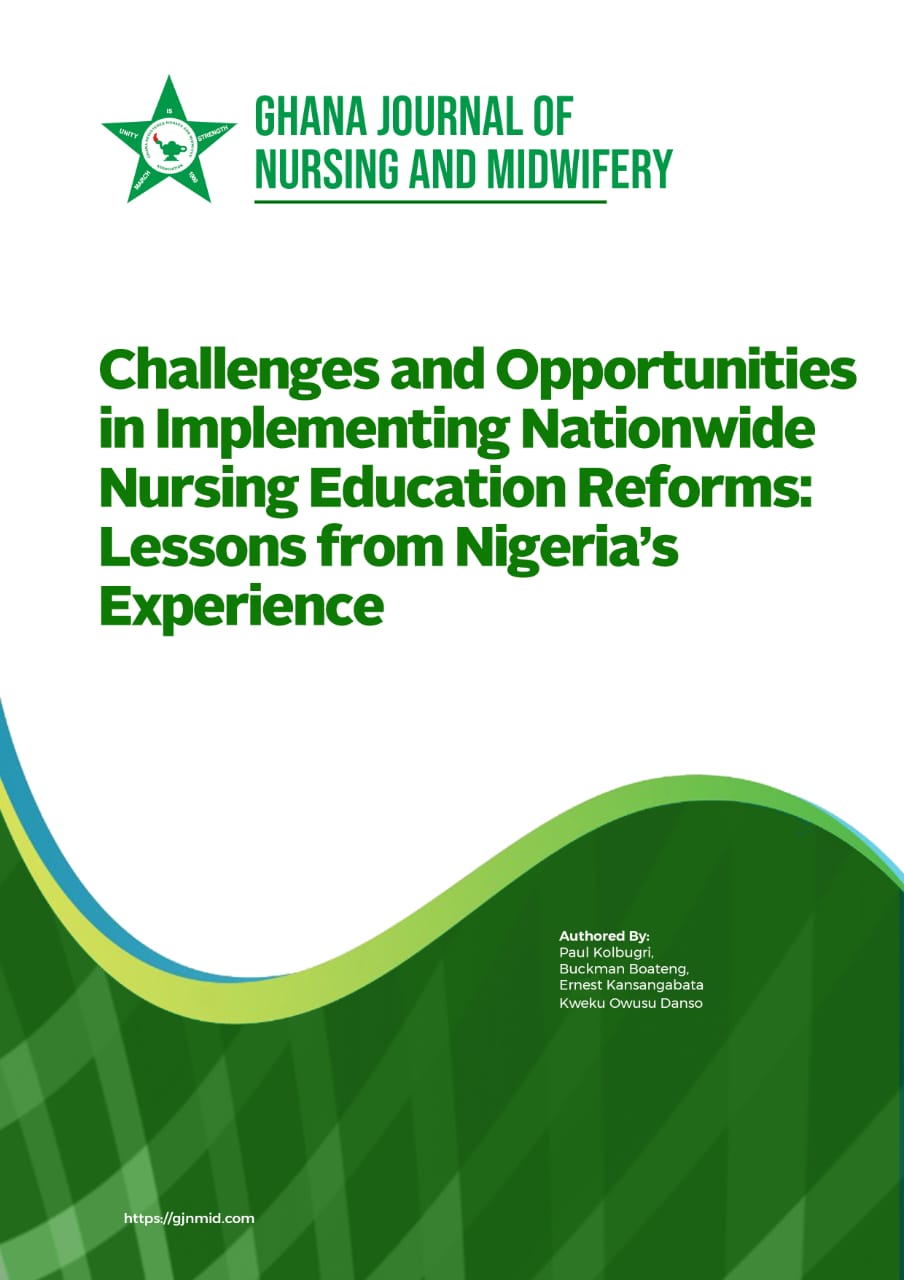Challenges and Opportunities in Implementing Nationwide Nursing Education Reforms Lessons from Nigeria’s Experience
Main Article Content
Abstract
Objective: This paper aims to analyze lessons learned from Nigeria’s experience in implementing nationwide nursing education reforms to inform Ghana's potential transition to a Bachelor’s degree as the minimum entry requirement for nursing practice.
Method: A comprehensive SWOT analysis was conducted based on literature review of studies related to nursing education reforms in Nigeria and other African countries.
Findings: The analysis revealed several key strengths and opportunities, including growing recognition of the need for reform, existing competency-based frameworks, and potential for leveraging technology in education. However, significant challenges were also identified, such as inadequate clinical training facilities, shortage of qualified educators, and the threat of brain drain.
Conclusion: Successful implementation of nursing education reform in Ghana will require addressing resource constraints, enhancing quality assurance mechanisms, and aligning curricula with evolving healthcare needs.
Recommendations: Gradual implementation, stakeholder engagement, investment in infrastructure and faculty development, and partnerships with international institutions are recommended.
Significance: This analysis provides valuable insights for policymakers and educators in Ghana, contributing to evidence-based decision-making in nursing education reform and broader healthcare policy.
Downloads
Article Details

This work is licensed under a Creative Commons Attribution 4.0 International License.
Copyright (c) 2024
This work is licensed under a Creative Commons Attribution 4.0 International License.






